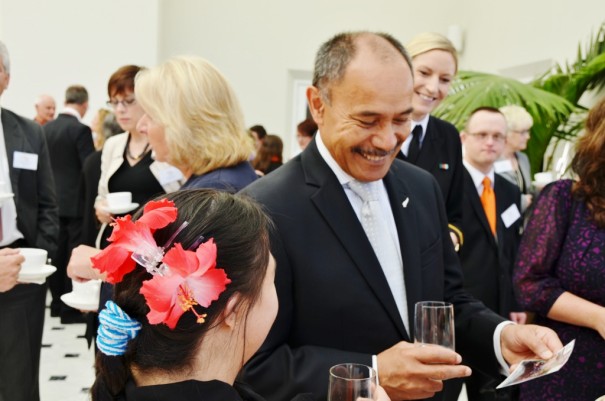The New Zealand Down Syndrome Association 2013 National Achievement Awards

Kia ora! Distinguished guests, New Zealand Down Syndrome Association staff, award recipients, ladies and gentlemen, girls and boys warm greetings to you all.
I specifically acknowledge: Hon Tariana Turia, Minister for Disability Issues; Shelley Waters and Zandra Vaccarino, President and National Executive Officer respectively of the New Zealand Down Syndrome Association; Paul Gibson, Human Rights Commissioner with responsibility for disability issues.
As Patron of the New Zealand Down Syndrome Association, it’s a great pleasure for me, together with Janine, to welcome you all to Government House this morning to once again host the annual National Achievement Awards Ceremony.
Today we gather for a number of reasons. First and foremost, today the 21st day of the 3rd month, is World Down Syndrome Day. The date signifies the uniqueness of Down syndrome in the triplication of the 21st chromosome.
The United Nations General Assembly formerly announced the 21st of March as World Down Syndrome Day in December 2011. That level of recognition and promotion of the Day plays an important part in raising international public awareness.
Secondly, we gather today to share morning tea, as part of the nationwide T4T events.
And most importantly, we are gathered here today to recognise and celebrate the achievements of three very special people: Erin Smith, Abigail Knight, and Carlos Biggemann.
Before we move to the National Achievement Awards, I would like to make a few brief comments on the significance of today.
According to Statistics NZ, there were 61,178 live births registered in New Zealand in the year to December 2012. Of those babies it is expected that about one in every thousand was born with Down Syndrome. We don’t know why the condition happens. It just occurs. What we do know is that there is no cure as such, it is a life-long condition that delays learning and development.
Those born with the condition didn’t have a choice. However, as a community, we have the choice to embrace and include them as valuable members of our society. While we have come a long way over the years on the road to achieving fair opportunities, those with Down syndrome, and their families, still face many challenges.
Educating the more than 4 million New Zealanders is an essential part of ensuring nationwide community support for those of our New Zealand family living with the condition. It also serves to communicate to the wider world the quality of our society.
On behalf of all New Zealanders, I thank the New Zealand Down Syndrome Association for the work it does in promoting the participation of people with Down syndrome in our communities. It seems to me that you are an organisation that protects some things that are important to New Zealanders – the appeal of living in a country where the protection and welfare of vulnerable members of our community and their access to a fair and participative life are upheld.
As the recipients of this year’s National Achievement Awards demonstrate, people with Down Syndrome can achieve, and they can contribute to our society if we, the wider community, give them the opportunity.
Life sends us gifts in the form of children, and that, above all else, is what we celebrate today. Our children, and the recognition of their success.
Kia ora huihui tātou katoa.
